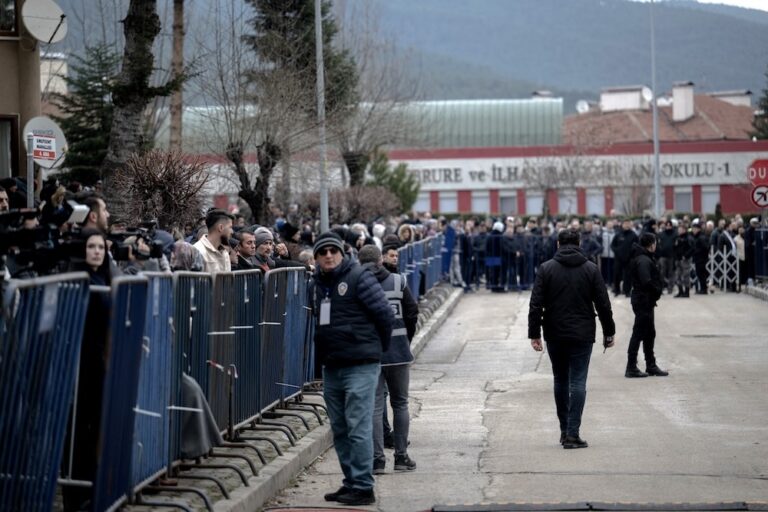(WiPC/IFEX) – On 16 December 2005, the Sisli No. 2 Court of First Instance in Istanbul announced that the hearing against Orhan Pamuk, one of Turkey’s most eminent writers, would be adjourned until 7 February 2006. His trial dossier is apparently still with the Ministry of Justice in Ankara for consideration that Pamuk be tried […]
(WiPC/IFEX) – On 16 December 2005, the Sisli No. 2 Court of First Instance in Istanbul announced that the hearing against Orhan Pamuk, one of Turkey’s most eminent writers, would be adjourned until 7 February 2006. His trial dossier is apparently still with the Ministry of Justice in Ankara for consideration that Pamuk be tried under the old penal code that was repealed on 1 June 2005. Pamuk’s “offence” was a statement published in a Swiss newspaper in which he declared “One million Armenians and 30,000 Kurds were killed in these lands [Turkey] and nobody but me dares talk about it.” This has led to his being accused of “publicly denigrating Turkish identity”. The comment was made in February 2005, before the penal code was revised. Since then, Article 159 of that Penal Code, dealing with “insult” to the Turkish state, has been replaced by the new Penal Code Article 301.
Until a few days ago, it was thought that the court would hear a request that the trial proceed under the new Penal Code. Pamuk’s lawyer, Haluk Inanici, in a written statement earlier this week, said that the court asked the prosecutor’s office whether Pamuk should be tried according to the new Penal Code or the old version. On December 2, the Istanbul court stated that, while both article 159/1 of the old penal code and article 301/1 of the new code call for prison sentences of up to three years for the same “crime”, the old law favours Pamuk as it requires the permission of the Ministry of Justice to proceed with the trial.
Among the many observers of the trial were the Chair of International PEN’s Writers in Prison Committee Karin Clark, President of the Turkish PEN Centre Vecdi Sayar, and International PEN Board Member Eugene Schoulgin. Here follows their account of the events this morning:
“The scenes around the first appearance of Orhan Pamuk before Sisli No. 2 Court of First Instance on 16 December 2005 at 11:00 a.m. [local time] were marked by constant shouting and scuffling, turning ugly and violent at times. As those attending the proceedings left the court, eggs were hurled along with insults from the nationalists and fascists among the crowd lining the pavement across the street – this in full sight of the national and international media, which had turned out in full.
“Right-wing hecklers had already greeted the defenders of free expression from within and outside Turkey with banners bearing slogans in English and even in German, such as: ‘Turkey for the Turks – this is none of your concern’, ‘Foreign presence is uncalled for’, ‘You are putting Turkey on trial, giving it a bad name’, ‘You are only here for the show’, etc.
“The courtroom was packed with well over 70 people, among them famous Turkish writers such as Yasar Kemal and Arif Damar, representatives of the European Parliament, several diplomats, and members of Turkish and international freedom of speech organizations. The aggression and heckling inside and outside the court did not abate. Some ten lawyers of the extreme right who want to be involved in the case on the prosecutor’s side, some in their robes, others in street clothes, eventually surrounded the court officials seated on the podium, with Orhan Pamuk and his defence lawyer standing before them. One of the lawyers who had initiated the charges, even though he did not have any right to intervene as there had not been a decision yet on whether or on what grounds the trial would be opened, was allowed to speak for almost 10 minutes without being interrupted by the judge. He made accusations against Orhan Pamuk, who was represented by council but who was not called on to speak himself.
“Again and again, confrontations and shouting in the hallways interrupted the proceedings, the aggressive mood spilling over into the courtroom itself. The session ended after an hour and 15 minutes with an adjournment until 7 February 2006, due to the fact that the Ministry of Justice had indicated it needed more time to decide on the legal basis of the trial”.


